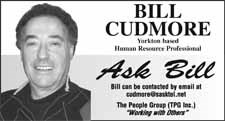Last week I introduced the topic of Coaching and how it pertains to, not only sports, but also our personal and professional lives. The following information includes statistics illustrating the growing profession of Coaching in today's world.
In 2007, the National Post declared Coaching to be the 2nd fastest growing profession in the world, second only to Information Technology. Although Coaching gained wide spread acceptance in organizations in the 1990's, it has only flourished in the recent years. Fortune Magazine 2000. Another way to look at the spread of Coaching is that it bridges the gap between what managers/leaders are being asked to do and what they have been trained to do. Gallup Organization. Highly engaged workplaces are: 50% more likely to have lower turnover, 56% more likely to higher-than-average customer loyalty, and 38% more likely to have above average productivity and 27% more likely to report higher profitability.Investing in programs that build the capacity of managers to have coaching conversations will pay dividends in individual employee engagement, organizational health and business success. The old 'command and control' style of leadership is sometimes out of sync with the younger, inner-directed, collaborative and culturally diverse workplace. (Alison Henderson, Master Certified Coach and Faculty Member for the Graduate Coaching Program at Royal Roads University).The following information provides justification regarding the Case for Coaching in our personal lives. This list, although not exhaustive, does make a point. Demands are increasing as we must do more with less. In some households we have two people working and/or a single parent juggling activities for themselves and their kids'. Pace is faster which requires superior time management and organizational skills. The proverbial question, "Where does the time go"? Learning curves are steeper with the advance of technology. Information is obtained, analyzed and dispersed with expected, sometimes demanded short time frames for responses, referencing e-mail.Generally, Certified Coaches provide the following: Coaches are trained to listen, observe and to customize their approach to individual client needs. Coaches seek to elicit solutions and strategies from the client. Coaches believe that a client is naturally creative and resourceful. Coaches provide support to enhance the skills, resources and creativity the client already has.
There are more than 5 coaching skills, to be sure, however there 5 core skills that form the basis for all the rest. These are the anchors and they will support you in every facet of your work and life. The more sensitive you are to them, the more they will work for you.5 Core Coaching Skills1. Listening2. Encouraging3. Questioning4. Requesting5. Action Planning
These are skills many of us have heard before and know they are effective, but the difficulty is how to apply them on a daily basis, not just at work. If you are "stuck" on a particular issue in your personal life, at work, who can you talk to in a safe and comfortable environment, (friend, co-worker, spouse, significant other)? Those that will actually listen, probe for additional information without providing advice after 2 minutes into the conversation or changing the topic to events/activities in their world. If you havea person with the above skills in your life consider yourself lucky.
Next week - More on Coaching.
Send your comments and questions to [email protected] or [email protected]. All mail is confidential.




